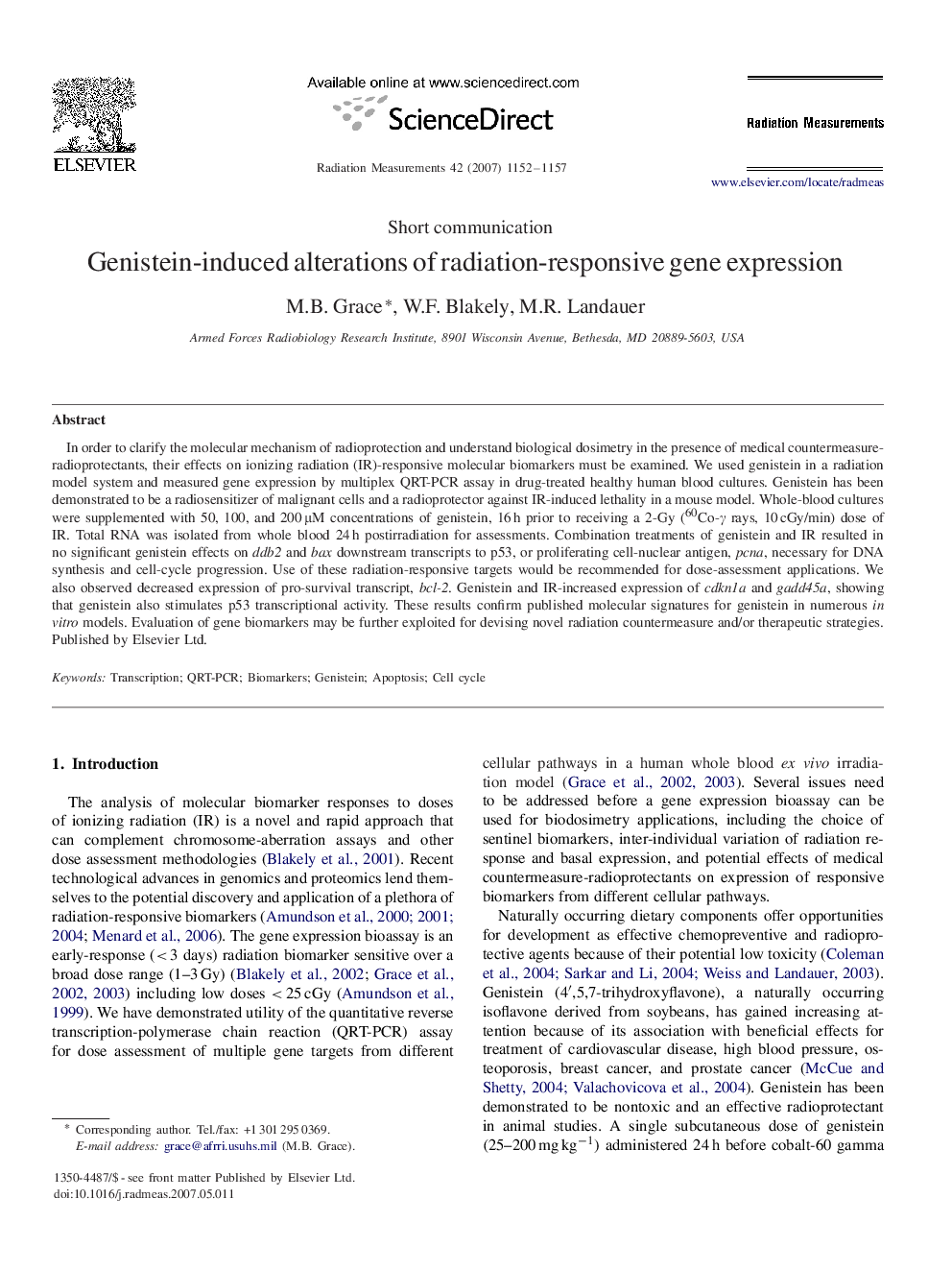| Article ID | Journal | Published Year | Pages | File Type |
|---|---|---|---|---|
| 1888999 | Radiation Measurements | 2007 | 6 Pages |
Abstract
In order to clarify the molecular mechanism of radioprotection and understand biological dosimetry in the presence of medical countermeasure-radioprotectants, their effects on ionizing radiation (IR)-responsive molecular biomarkers must be examined. We used genistein in a radiation model system and measured gene expression by multiplex QRT-PCR assay in drug-treated healthy human blood cultures. Genistein has been demonstrated to be a radiosensitizer of malignant cells and a radioprotector against IR-induced lethality in a mouse model. Whole-blood cultures were supplemented with 50, 100, and 200μM concentrations of genistein, 16 h prior to receiving a 2-Gy (60Co-γ rays, 10 cGy/min) dose of IR. Total RNA was isolated from whole blood 24 h postirradiation for assessments. Combination treatments of genistein and IR resulted in no significant genistein effects on ddb2 and bax downstream transcripts to p53, or proliferating cell-nuclear antigen, pcna, necessary for DNA synthesis and cell-cycle progression. Use of these radiation-responsive targets would be recommended for dose-assessment applications. We also observed decreased expression of pro-survival transcript, bcl-2. Genistein and IR-increased expression of cdkn1a and gadd45a, showing that genistein also stimulates p53 transcriptional activity. These results confirm published molecular signatures for genistein in numerous in vitro models. Evaluation of gene biomarkers may be further exploited for devising novel radiation countermeasure and/or therapeutic strategies.
Related Topics
Physical Sciences and Engineering
Physics and Astronomy
Radiation
Authors
M.B. Grace, W.F. Blakely, M.R. Landauer,
